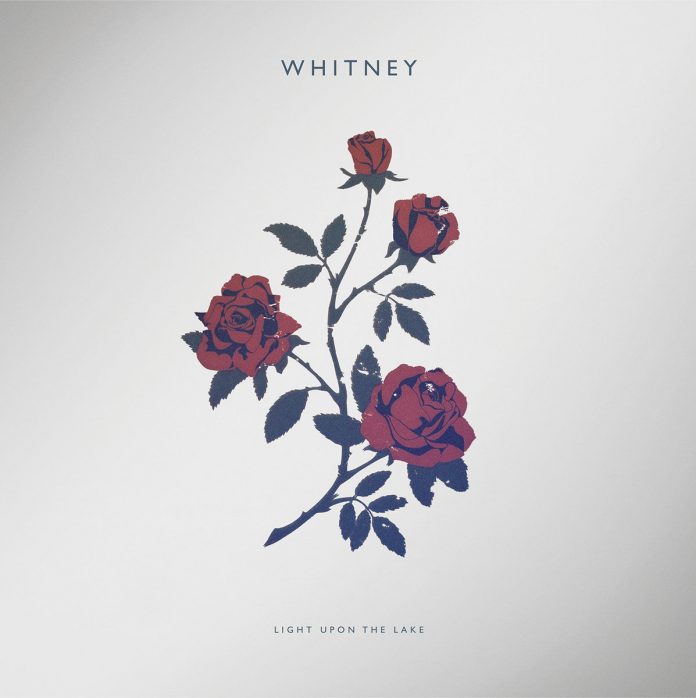Whitney’s Light Upon The Lake is one of the strongest debuts I’ve heard in a while. And somehow, it gets away with doing something most albums wouldn’t be able to mitigate: opening with its best track.
“No Woman” ran the risk of turning into one of those songs that reflects a trend within a genre so completely that they turn into jokes. But it didn’t.
Lead singer Julien Ehrlich’s falsetto, half-folk, half-shoegaze vocals are immediately the central point of attention, but where the track really nails it is in the fact that it doesn’t coast on Ehrlich’s vocals. Instrumentally, influences that range from R&B (the Ben E. King “Stand By Me” flavoured bassline) to folk, and more contemporary styles.
Songs like “Light Upon the Lake,” all harmonies and intricately picked, vaguely muted guitars contribute to the odd half-shoegaze, half-folk composition of the record. More than that, the record’s success can be explicitly attributed to the band’s practice of setting up, within each song, two or three tightly-constructed hooks, and driving them home with just enough time in between to avoid falling into repetitive ruts. “No Matter Where We Go” for example, is pure classic rock, but much, much softer. Like The Stampeders’ “Sweet City Woman” but without any of the kitsch.
And then we get tracks like “Red Moon” which let the trumpet take centre stage. And as short as the track is, it comes off as a funky, danceable little jam that’s as distinct as it is a part of the record.
Whitney’s debut manages to be diverse enough to warrant multiple listens, and at the same time so sure of itself and its sound that it comes across as a “best of” collection. Moreover, the record manages to largely embrace emotionality without turning to clichés.
Almost.
There’s one cliché. Well, really it’s one song that is also one long cliché.
“Golden Days” is every vaguely miserable, happy-go-lucky, looking-back-over-my-shoulder ballad ever. But it’s also so damn good.
This is largely due to Ehrlich’s falsetto which is both groovy and earnest. Also, structurally the track has one of the catchiest verse melodies ever, which the band takes advantage of by repeating verses before launching into a lush yet low key, spongy guitar solo. Trumpets join in halfway and are eventually joined by the kind of “nah-nah” phrase that gets so much criticism nowadays for being unimaginative.
It all comes together to make one gorgeously uplifting track.
“Dave’s Song,” the track that follows, is unapologetically country in instrumentation, but delivered with an R&B sensibility.
I mentioned “Light Upon The Lake” coming off as partly shoegaze. This is also legitimate for the rest of the record, but inversely.
It’s happy shoegaze. “On My Own” for example, if it were cut down to half its tempo and delivered with much more monotone vocals, would be entirely shoegaze. Right there next to any number of third-generation Joy Division copycats. Its uplifting mood carries the track on without a fault, however.
If you only listen to one track on this album, though, make it “Polly.”
It’s simple, earnest, and yet one of the most successful instances of a track that’s instrumentally playful and lyrically earnest the entire way through, without getting boring. And boasts one of the least out-of-place trumpet solos ever featured in a contemporary non-jazz album.
The best sales pitch for Light Upon The Lake, however, is its first three tracks. But I don’t have to sell you this album, it does that well enough itself.
All I have to do is tell you to listen to “No Woman.”
Listen to “No Woman.”


